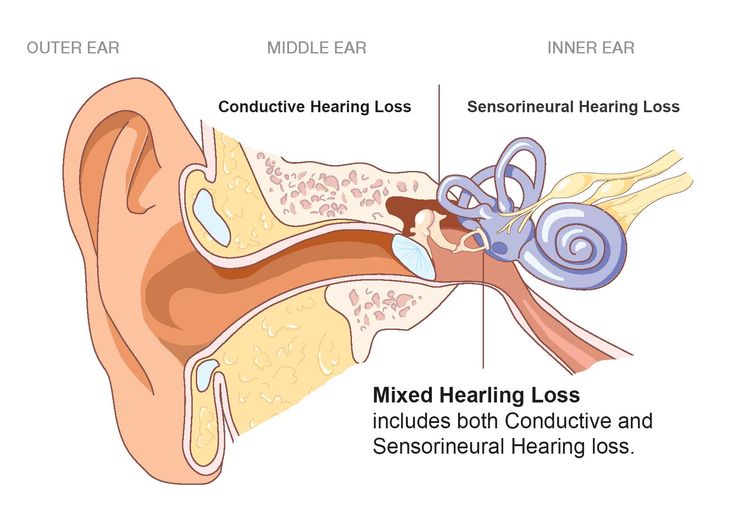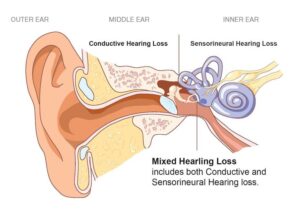Hearing is an essential part of our daily lives, allowing us to communicate, engage with loved ones, and enjoy the world around us. However, hearing loss can develop gradually, making it difficult to notice the changes until they start affecting daily activities. If you find yourself frequently asking people to repeat themselves, struggling to follow conversations in noisy environments, or turning up the volume on your TV or phone, it may be time to schedule a hearing aid consultation.
Taking proactive steps toward addressing hearing loss can significantly improve your quality of life and preserve important social connections. This guide will walk you through recognizing the signs of hearing loss, understanding the consultation process, and preparing for your appointment.
Scheduling a Hearing Exam
The first step in addressing hearing loss is scheduling a professional hearing exam. If you suspect that your hearing is declining, seeking help from a healthcare provider is essential. You can start by consulting your primary care physician, who may refer you to an audiologist or a hearing specialist. Alternatively, many audiology clinics allow you to book an appointment directly
When scheduling, you may need to provide basic personal and insurance details and briefly describe your hearing concerns. Some clinics also have pre-exam requirements, such as avoiding loud noise for 24 hours before your appointment. Most hearing evaluations can be scheduled within one to two weeks, allowing you to take the first step toward better hearing health without unnecessary delays.
Common Signs of Hearing Loss
Recognizing the symptoms of hearing loss is crucial in seeking timely intervention. Many people assume that hearing loss means total deafness, but in reality, it often starts subtly. You may find that you frequently turn up the volume on the television or radio higher than others prefer. Conversations in crowded restaurants or social gatherings may become difficult to follow, making social interactions feel exhausting.
Many individuals with hearing loss feel like others are mumbling or speaking unclearly, even when they are speaking at a normal volume. High-pitched sounds, such as doorbells, phone rings, or alarms, may become harder to hear. Some people struggle to understand women’s or children’s voices due to the pitch of their speech. If these experiences are familiar, a hearing exam can help determine the extent of your hearing difficulties and the best possible solutions.
Types of Hearing Healthcare Providers
Different types of healthcare professionals specialize in hearing care, and choosing the right provider is an important step in the consultation process. Audiologists are highly trained professionals with a Doctor of Audiology (Au.D.) degree. They specialize in diagnosing and treating hearing loss and can recommend treatment plans, including hearing aids or other assistive devices.
Hearing instrument specialists focus specifically on fitting and maintaining hearing aids. Some Ear, Nose, and Throat (ENT) physicians also provide hearing-related services, especially in cases where hearing loss may be linked to medical conditions such as infections, tumors, or structural ear problems. Selecting the right provider depends on the severity of your hearing loss, your medical history, and your insurance coverage.
Preparing for Your Consultation
Before your hearing consultation, gather the following information and materials:
- Medical History Documentation:
- Past ear infections or surgeries
- History of noise exposure
- Family history of hearing loss
- Previous hearing tests or treatments
- Specific situations where hearing is difficult
- Times of day when hearing seems worse
- Environments that cause the most trouble
- Questions about hearing aids and treatment options
- Complete list of medications
- Any balance or dizziness issues
- Recent changes in hearing ability
- Other relevant medical conditions
- Bring a family member or close friend
- They can help recall information
- Provide observations about your hearing
- Take notes during the consultation
Insurance and Financial Considerations
Understanding the financial aspects of hearing healthcare is an important part of the consultation process. Before your appointment, contact your insurance provider to check what coverage they offer for hearing evaluations and hearing aids. Many insurance plans cover diagnostic testing but may offer limited or no coverage for hearing aids themselves. If hearing aids are not fully covered, some clinics provide payment plans, financing options, or assistance programs to make them more affordable.
Certain nonprofit organizations and assistance programs offer financial aid or discounts for hearing aids, particularly for seniors or individuals with limited income. Some clinics provide free initial screenings, while more comprehensive evaluations may come with a separate fee. Clarifying these costs beforehand ensures that you are financially prepared for your consultation and any potential hearing aid purchases.
What to Expect During the Consultation
The initial hearing consultation typically lasts between sixty and ninety minutes. The audiologist or hearing specialist will begin by reviewing your medical history and discussing your concerns. They will ask about situations where you have difficulty hearing and any noticeable changes in your hearing ability over time.
The next step is a series of hearing tests designed to assess how well you hear different frequencies and speech sounds. These tests may include a pure-tone audiometry test, which measures your ability to hear different tones, and a speech recognition test, which evaluates how well you understand spoken words. The results of these tests will be displayed on an audiogram, a chart that shows the type and degree of hearing loss you have.
Final Thoughts
Recognizing hearing loss and seeking professional help early can significantly improve communication, confidence, and overall quality of life. Modern hearing aids are highly advanced, discreet, and customizable to individual needs, making them an excellent solution for those experiencing hearing difficulties.
With professional guidance, proper financial planning, and the right hearing solutions, you can improve your hearing and continue to enjoy meaningful interactions with family, friends, and colleagues. Don’t let concerns about cost or appearance prevent you from seeking the help you deserve. Take action today and begin your journey to better hearing.
Frequently Asked Questions
How do I know if I need a hearing aid consultation?
If you frequently ask people to repeat themselves, struggle to hear in noisy places, or turn up the volume on your devices, it’s time to schedule a hearing evaluation.
How long does a hearing exam take?
A comprehensive hearing exam usually takes 60 to 90 minutes, depending on the number of tests performed.
Are hearing aids covered by insurance?
Coverage varies by provider. Some insurance plans cover hearing exams but offer limited or no coverage for hearing aids. Check with your provider for details.
What happens if I ignore my hearing loss?
Untreated hearing loss can lead to communication difficulties, social isolation, cognitive decline, and reduced overall quality of life.














